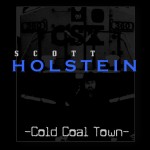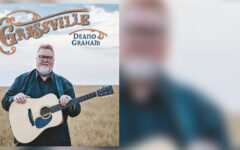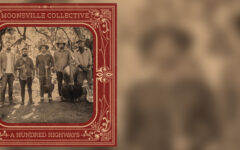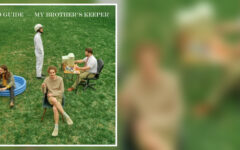 Scott Holstein was born in Boone County, in the heart of the coalfields of West Virginia, and he has chosen that imagery for the title of his album, Cold Coal Town.
Scott Holstein was born in Boone County, in the heart of the coalfields of West Virginia, and he has chosen that imagery for the title of his album, Cold Coal Town.
His mother and father both played bluegrass Gospel music as far back as he can remember and he began performing at the age of five with fiddler Senator Robert Byrd. Holstein started writing songs as a young boy.
His biggest influences in song writing are Merle Haggard and, in performance style, Keith Whitley, although it is apparent that the likes of Waylon Jennings, Kris Kristofferson, Hank Williams and Dave Evans have left their mark on Holstein’s psyche.
Almost all of his kin are in the mining industry and have been for more than a century. His grandfather was in the historic battle of Blair Mountain, 1921; one of the largest civil uprisings in United States history and the largest armed insurrection since the American Civil War. During the five-day confrontation between 10,000 and 15,000 coal miners fought an army of police and strikebreakers backed by coal operators, in an attempt by the miners to join a union in the southwestern West Virginia coalfields.
Holstein moved to Nashville in the spring of 2009…
“I was doing road gigs with Dave Evans and several other known acts and was ‘itching’ to record my own music. Randy Kohrs encouraged the move to Nashville to record my original music after we met at a festival around Macon, Georgia.”
Kohrs followed that by setting up the session at his own Slack Key Studio for August 17, 2010.
All the songs on Cold Coal Town were penned by Holstein, who says,
“These songs have been in my head for a while now and I made a point to debut my original music to honor where I came from (so they won’t forget me – and I don’t forget where I came from!). The songs on the album never had to be written down – they were just there.”
Now from whom have I heard that before?
Holstein [guitar and vocals] is joined in the studio by co-producer Randy Kohrs [Dobro and vocals], Clay Hess [lead guitar], Scott Vestal [banjo], Aaron Ramsey [mandolin], Tim Crouch [fiddle] and Jay Weaver [bass], with Don Rigsby providing harmony vocals on two tracks.
http://www.youtube.com/watch?v=skFWYdD1RFsI would describe Cold Coal Town as mood music, dark moody blues; bluesy bluegrass-country that barely changes except for the bouncy banjo-led Leavin’ Charleston and the other instrumental on this disc, The Holstein Waltz. On these and throughout the ‘band’ is exemplary.
The sombre tone is set with the opening bars of the Dobro intro to The Spell followed by Holstein’s husky baritone telling a tale of lost love. The second track, Walls of Stone, bemoans the consequences of jealous love.
Holstein uses his voice very well, bringing a softness to the haunting tribute to another of Holstein’s influences, the Stanley Brothers, in Clinch Mountain Hills, a superb duet with Don Rigsby, Boone County Blues, another lament to lost love, and Montani Semper Liberi (Latin for “Mountaineers are Always Free”), the West Virginia state motto.
The a cappella trio Black Water and Cold Coal Town are both top quality additions to the coal-mining song repertoire. The former relates the devastating events in Buffalo Creek in 1972 when 125 lost their lives; the title track is an expression of the desire to get away from coal mining and all that it brings. Both merit favourable comparison with similar songs penned by Hazel Dickens and Merle Travis. Along with Ain’t No Higher Ground and Roll Coal Roll Holstein shows that he is a great spokesman for the coal miner in the 21st century. Sadly, nothing much changes in the industry, or the way of life for many in West Virginia.
On the back page of the notebook there is a legend “The bluegrass sessions Vol. 1”; on the basis of what Holstein has produced in Cold Coal Town I can’t wait for Vol. 2.







